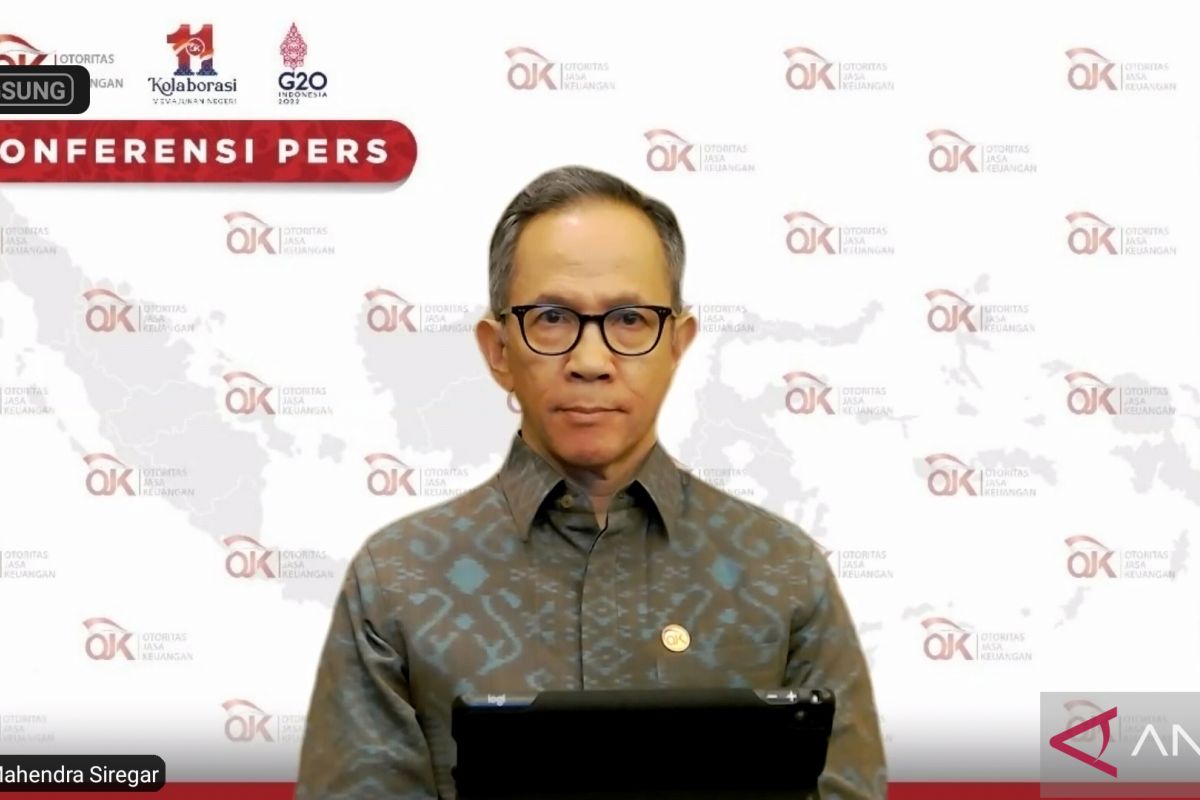He delivered the statement at an online press conference on the OJK board of commissioners' meeting (RDK) in Jakarta on Thursday.
The intermediation performance of financial services institutions (LJK) has also shown consistent growth, in line with the growth of the national economy.
This positive performance has contributed to the continued recovery of the national economy in the midst of high economic uncertainty at the global level, he said.
"Indonesia's economic growth forecast is also growing slightly, however, the projected growth in 2022 can still be maintained," Siregar added.
Furthermore, he informed that the economic indicators are also currently showing a relatively good performance of the national industry, as seen from the trade balance, which has recorded a high surplus, the purchasing managers' index (PMI) or manufacturing index, which is in the expansion zone, as well as solid public consumption.
According to Siregar, the national economy has remained relatively stable in the midst of pressure on international financial markets due to the tightening of monetary policy by various central banks, the ongoing geopolitical conflict between Russia and Ukraine, and the decline in global economic growth.
"The high downsize risk of the global economy has prompted the IMF (International Monetary Fund) to estimate that more than a third of the countries in the world will start a growth contraction this year and also next year (2023)," he noted.
A global recession would affect oil and other commodity prices in 2023, Finance Minister Sri Mulyani Indrawati said earlier.
"The United States and Europe will clearly face a very high potential for a recession, why? (This is) because their inflation is very high, the highest in 40 years and is currently being responded to by increasing benchmark interest rates and tightening liquidity," she noted.
At first, central banks in the US and Europe still considered the inflation to be temporary and attributed it to the disruption caused by the COVID-19 pandemic. However, with the emergence of the conflict between Russia and Ukraine, oil is also being used as one of the instruments of war.
Hence, the minister said she believes that if various developed countries enter a recession, the demand for oil will slide and the pressure of rising oil prices would likely decrease, thereby reducing oil prices from US$100 per barrel.
In addition to the potential for a recession, Indrawati said that another factor that would affect global oil and commodity prices is the prolonged conflict between Russia and Ukraine.
Related news: Financial services sector sustain stability in 2021 first-semester
Related news: Stability of financial services sector maintained until April: OJK
Translator: M Heriyanto, Azis Kurmala
Editor: Rahmad Nasution
Copyright © ANTARA 2022












